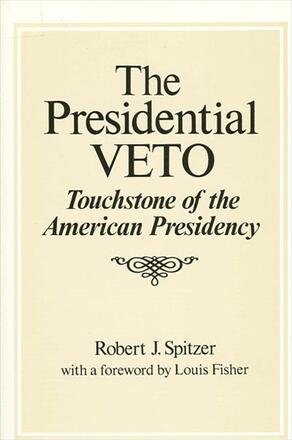
The Presidential Veto
Alternative formats available from:
Description
This is the first modern study of the veto. In addition to tracing the genesis and historical evolution from Ancient Rome, through the ultimate inclusion in the Constitution, it also explores the veto's consequences for modern presidents. In doing so, Spitzer promotes a key argument about the relation between the veto power and the Presidency — namely, that the rise of the veto power, beginning with the first Chief Executive, is symptomatic of the rise of the strong modern Presidency, and has in fact been a major tool of Presidency-building.
A special and revealing irony of the veto power is seen in the finding that, despite its monarchical roots and anti-majoritarian nature, the veto has become a key vehicle for presidents to appeal directly to, and on behalf of, the people. Thus, the veto's utility for presidents arises not only as a power to use against Congress, but also as a symbolic, plebiscitary tool.
Robert J. Spitzer is Associate Professor and Chair of the Political Science Department at State University of New York College at Cortland. Author of The Presidency and Public Policy: The Four Arenas of Presidential Power and The Right to Life Movement and Third Party Politics, he is currently serving as a member of the New York State Commission on the Bicentennial of the Constitution.
Reviews
"This is a clearly presented, well documented, balanced analysis. The author offers a great deal of information about the growth and use of the presidential veto. It is also a very useful book because it brings together much material on a widely studied topic." — Morris S. Ogul
"This book is extremely well written. What I like most is the way the author explains the historical development of the veto power and makes it relevant to the present nature of the presidency. He presents enough detail to fully understand the context of developments, yet not so much detail as to bore the reader or lose sight of the main point he is making. The research is very thorough and the scholarship is sound. The book is interesting to read, and the author has a good sense of humor and a fine feeling for irony." — James P. Pfiffne